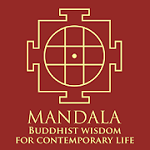"They had felt the net closing in for several days," the friend told Reuters in Bangkok.
The protest movement started out in mid-August as a series of sporadic marches organized by members of the so-called "88 Generation Students Group" against shock fuel price increases in the deeply impoverished former Burma.
However, the dissent quickly escalated into a major uprising against the junta after soldiers fired over the heads of a crowd of protesting monks in the central town of Pakokku.
At its height at the end of September, tens of thousands of people packed central Yangon chanting "democracy, democracy" and demanding an end to 45 years of military rule and economic decline.
By then, however, 13 leaders of the "88 Generation" group, including Min Ko Naing, the most prominent opposition figure after Nobel laureate Aung San Suu Kyi, had already spent six weeks in detention, having been rounded up on August 21.
However Htay Kywe managed to remain at large. In an interview with Reuters conducted from hiding on September 13, he correctly predicted the junta's bloody crackdown, but said it would ultimately fail to suppress the push for democracy.
"There is no way this will stop," he said. "Arresting and killing people will not free us from economic hardship."





